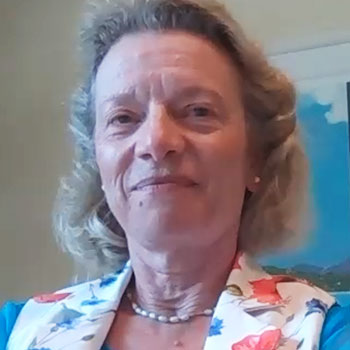Internal medicine: Validating our identity and value
ACP is launching a new campaign to educate about the depth and diversity of internal medicine and highlight the value that all internal medicine physicians bring to health care.
Throughout my career, I have commonly been asked by my children, family members, patients, and the general public, “What is internal medicine?” Of all of the specialties that exist, the title of internal medicine is an enigma to many.
I vividly recall trying to explain internal medicine to my kids one day during their youth. Despite my efforts over the years, I was approached with the repeated question of, “Dad, what does internal medicine mean again?” The titles of our subspecialist colleagues are based on the organ or system they care for (e.g., cardiology, pulmonology, gastroenterology, nephrology), and there is an even better accepted societal understanding of our pediatrician colleagues' role in the care of children, or the role of the surgeon. However, the term “internal medicine” is not intuitive to what we do as internal medicine physicians. This complicates an attempt to demonstrate value, as it is more challenging to prove value when those outside of the medical profession are not sure who we truly are or what we do as internal medicine physicians.
In the U.S., the specialty of internal medicine had its origins in the Association of American Physicians (AAP), a scholarly society that reported and shared medical experiences. In 1895, Sir William Osler was president of the AAP and opened the 10th AAP meeting with his presidential speech. His address marked the first recorded time the term “internal medicine” was used in the U.S., as he also outlined the skills and training required to practice in this field. Osler apparently borrowed the term “internal medicine” from the Germans, who began using it in the early 1880s. The innere in the German innere Medizin was believed to specify that these physicians dealt with scientific methodology, exploring the inside of a clinical case by applying an understanding of experimental science to derive at a diagnosis, and did not refer to the interior of the body.
During my 20 years in clinical practice, the COVID-19 pandemic was the first time I witnessed a collective value and pride among internal medicine physicians as an essential specialty providing frontline care for patients. Primary care internal medicine physicians were entrenched with COVID-19's presenting symptoms, patient inquiries, testing options, quarantine advice, and routine monitoring of those managing mild to moderate illness at home. Internal medicine physician hospitalists were overburdened with an influx of patient admissions, managing a heavy inpatient census in the midst of limited staffing and resources, and managing moderate to severe illness of inpatients affected by COVID-19 with a delay in effective treatment options. Internal medicine physician subspecialists were just as integral, including those in pulmonary/critical care, who directed the care of those critically ill; those in infectious disease, who developed protocols to lead health institutions with everchanging treatment algorithms and public preventive measures; and a variety of other subspecialists, who managed the acute and postacute COVID-19 complications of affected organ systems.
The pandemic truly brought the house of internal medicine together as one, as internal medicine physicians provided the majority of patient guidance and medical care. Unfortunately, it took a pandemic to shine a light on the comprehensive value of internal medicine as a specialty, but this was a defining moment of value that amplified the expertise, essentiality, and contributions of internal medicine physicians to the health care system.
We must continue to build on this opportunity to magnify the value of internal medicine as a specialty. Internal medicine physicians are the “comprehensivists,” “diagnosticians,” and “specialists” who apply scientific knowledge and clinical expertise to the prevention, diagnosis, treatment, and compassionate care of adults across the spectrum from health to complex illness. Internal medicine physicians are lifelong learners with a broad breadth of knowledge who impart empathy, respect, compassion, humility, and healing to the whole patient. Internal medicine physicians are the detectives of medicine, critically assessing all information and knowing when to extract certain findings (i.e., history, physical exam, or laboratory) that lead to a diagnosis of a presenting symptom or medical condition. Moreover, internal medicine physicians have a keen ability to provide high-value care by knowing when less medicine is the best medicine and using diagnostic skills to know when ancillary tests are not necessary. Internal medicine physicians even assist patients in preparing and navigating end-of-life scenarios while extending our humanity to assure their comfort and continued care. Finally, internal medicine physicians embrace complexity and uncertainty with humility, channeling our intellectual acumen in assessing the best available science to manage clinical cases or disease states.
As noted by our global internal medicine society leaders and colleagues during the 2021 ACP Global Forum, internal medicine identity, value, and public awareness are not just a domestic problem but rather an international problem. Our leadership in health care and the medical community has been ever-present for over a century, and we are involved in every level of patient care: ambulatory, hospital, academia, public health, research, administration, and government. Now is the time for internal medicine physicians to come together (even globally) to promote our value and better amplify the narrative in all that we do, along with promoting the value that we bestow upon the entire health care system. Internal medicine is essential!
ACP is launching a new campaign to educate about the depth and diversity of internal medicine, to highlight the value that all internal medicine physicians bring to health care, and to demonstrate the impact that we have within the broader health care environment. I hope these efforts can truly capture our identity for external stakeholders so my children will stop inquiring, “Dad, what does internal medicine mean again?”




